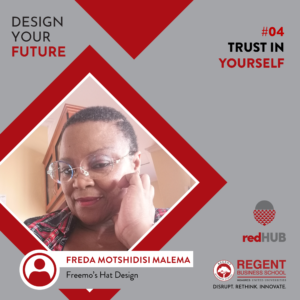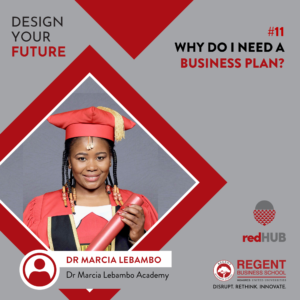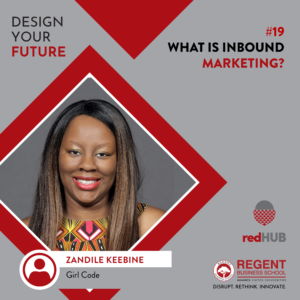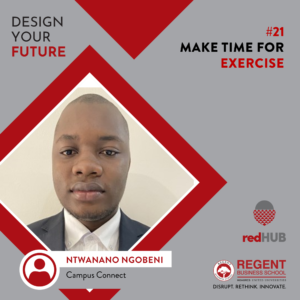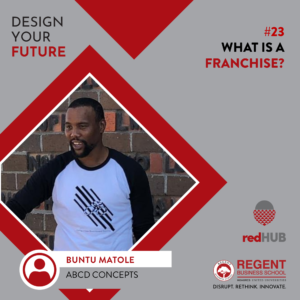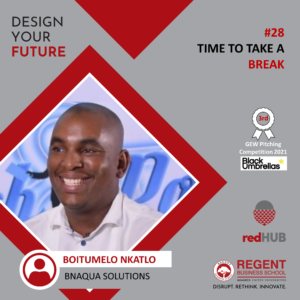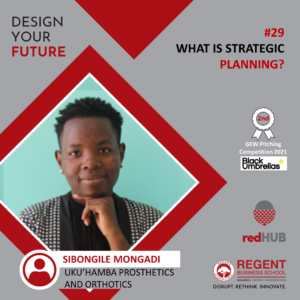01 TAKE A CHANCE, GO ON AN ADVENTURE
Becoming an entrepreneur may feel like the riskiest thing you have ever done, and it will be the bravest thing you try. You may not have a choice in becoming an entrepreneur or it may be something you’ve always wanted to try. Either way you may not succeed on your first try but remember with every try you learn something new about business and most importantly about yourself. No matter how your business turns out, you will have a story to tell and would have tried something unique, you would have tried to live your dreams … a dream to be the master of your own destiny.
02. CHALLENGE YOURSELF
Aim to learn something new every week and try something new every month. Learn how to take an idea or a skill you have and turn it into something that you can sell. learn how to sell your idea to people, how to market your idea to strangers, learn how to use social media, how to hire and empower people, how to understand the market and how to scale your business up. No entrepreneur knows how to do all of this on Day 1 but if you take one step at a time, then the next step, before you know it every step you have taken adds up to something bigger each month and year.
03. BUILD ON YOUR PASSION
Build something that you are passionate about, that helps you solve a problem that you, a friend or a family has, even better – solve a problem that helps many people overcome their challenges. Test your idea out with friends and family and see if your idea would help make their lives easier. Getting external feedback and validation about your idea is the single most important thing that will help you on your journey when you are doubting yourself and not sure if you should continue. Having customers tell you how you have helped them will help you take the next step and tackle the next challenge.
05. BUILD A NETWORK OF GREAT PARTNERS
Successful entrepreneurs can seldom build a great business alone. Finding great partners / suppliers / employee who you trust to enable your vision is a large part of the journey. Fill your team with people who have great character and you’re well on your way to success. When choosing your partners and team members, always remember that you can teach skills, but you can’t teach character.
07. LISTEN TO COMPLAINTS
Your customer’s complaints are how you identify gaps that you may not have seen. Without customers, you can’t have a successful business. Take your customers seriously, treat their complaints with respect, and listen. Turn feedback into action and every complaint into an opportunity to build a loyal customer who will be more than happy to refer your business on to their networks.
08. WHO CAN HELP ME FUND MY BUSINESS?
Friends or family who believe in my business with small amounts to help with proof of concept, buying initial stock, etc.
An angel investor is a person who invests his or her own money in a company, usually a start-up – that is in the early stages of development.
The goal of an angel investor is to help businesses get established. Their funding terms are often more favourable than those of other lenders. Many invest to support the entrepreneur behind the business, not just the business itself
09. I WOULD LIKE TO START A NEW BUSINESS WHO CAN HELP ME?
A business incubator is a program that gives very early-stage companies access to mentorship, investors and other support to help them get established.
Companies that use business incubators are start-ups in their “infancy” phase, meaning they have just launched and are still defining their operational models and goals.
10. I DON’T HAVE ALL THE SKILLS I NEED TO GROW QUICKLY, WHO CAN HELP ME?
A business accelerator is a program that gives developing companies access to mentorship, investors and other support that help them become stable, self-sufficient businesses. The goal is for companies to emerge ready to run on their own, with strong positioning to claim a share of their target markets.
11. WHY DO I NEED A BUSINESS PLAN?
A business plan is a document that outlines a company’s direction and strategy. Business plans typically:
• Identify a company’s target customers and their needs
• Describe the products and services the company offers to these customers
• Explain how the company will get its products to market and gain more customers
Good business plans are based on real knowledge of the solutions customers want and how they’ll use them. They also specify financial and non-financial targets for each set of customers the company serves. These financial targets are converted into forecasts and budgets and are tied to personal performance measures for company employees, starting with managers and moving down the hierarchy.
12. IS A GOOD BRAND IMPORTANT WHEN STARTING MY BUSINESS?
Absolutely! In highly competitive and overcrowded markets – a good brand goes a long way to help you create a unique and compelling identity for your business. A great brand is designed in a way that helps you attract your ideal customer and becomes the essence of everything that you do – how you service your clients, how you WOW them and how do you create loyalty. A good brand comes from a GREAT REPUTATION.
15. HOW DO I FIGURE OUT WHAT MARKETING APPROACH WOULD WORK BEST?
Key to successful marketing is to determine who exactly your target customers are (in as much detail as possible – what is their age, gender, buying preferences, likes, dislikes). The more information you have about your ideal customer – the easier it becomes to identify where to find them. For example, if you are launching a teen skincare range – platforms like Tik Tok, Instagram and teen magazines in your locality would be some of the more obvious channels to explore. Once you have the channels in place – you can look at what type of online marketing avenues would work best for your budget and needs.
16. WHAT IS E-COMMERCE?
E-commerce (electronic commerce) is the process of buying, selling or exchanging products and services electronically—usually via the Internet or a mobile device. Many successful start-up’s have leveraged off e-commerce platforms like Shopify to start and scale their own businesses.
17. WHAT IS ONLINE MARKETING?
Online marketing is marketing and advertising on the Internet to create brand awareness of your company, products and services.
Examples of online marketing includes: Pay-per-click, banner advertising, search engine optimisation (SEO), content marketing and social media marketing.
18. IS CONTENT MARKETING IMPORTANT AND HOW DO I MARKET ONLINE?
Content marketing is an online marketing strategy that helps companies attract and engage customers by publishing content specific to their interests and needs – e.g. blogs, articles, videos, social media posts, infographics and research papers. This content is posted or shared on the web, through social media or via a content sharing platform. Content will help you to raise the profile among potential customers and demonstrate expertise in your field, which increases loyalty of existing customers as well.
19. WHAT IS INBOUND MARKETING?
Inbound marketing is a marketing strategy designed to generate interest in a company’s products or services by creating high-quality content relevant to potential customers’ interests and needs, with the aim of turning them into paying customers. Examples would include blogs, vlogs, social media marketing etc. Many entrepreneurs have used content marketing strategies to build an audience and then later developed products or services to sell.
20. WHAT IS THE MOST IMPORTANT ONLINE MARKETING SUCCESS RATIOS THAT YOU SHOULD BE MONITORING?
Conversion rate is the percentage of visitors to a company’s website / e-commerce platform / app who take a desired action. For example, the percentage of visitors buying a product or service, registering a membership or downloading a catalogue. It is calculated by dividing the number of actions completed by the total number of site visitors.
22. IS IT IMPORTANT TO PROTECT MY IDEA OR INTELLECTUAL CAPITAL?
Copyright means the sole right to produce or reproduce a work or a substantial part of it in any form. It protects the value of the work by letting the copyright holder control how the work may be used. A copyright holder may reproduce, publish or perform the work as they see fit. If another person or company wants to use that work, they must either pay the copyright holder or otherwise get permission.
23. WHAT IS A FRANCHISE?
With a franchise, a company licenses its processes, intellectual property (e.g., trademarks), trade secrets and proprietary knowledge to an entrepreneur for a one-time fee and ongoing annual royalties.
An entrepreneur who buys a franchise is called a franchisee. The business that originally developed the products, services and proprietary knowledge being licensed is called the franchisor.
Franchising is a popular way to start a business and is prominent in the food industry. It gives an entrepreneur access to a franchise brand, marketing and ready-made operational model.
24. WHAT IS A TRADEMARK?
Trademarks are words, designs, emblems or a combination of these that distinguish a product or service. They can be classified as ordinary marks: words, sounds or designs / certification marks – a trademark that can be licensed to show a product or service meets a defined standard like SABS or a distinguishing guise such as product shape or packaging specific to a company.
26. WHAT ARE DIRECT COSTS?
Direct costs are the expenses a business incurs directly to make a product or service or buy a wholesale product for resale. (All other costs are considered to be indirect costs)
Cost of sales (COS) indicates how much a retail or wholesale business spends on the products it purchases from suppliers for resale.
Cost of sales appears as a direct cost on the income statement.
27. WHAT IS RETURN ON INVESTMENT (ROI)?
Return on investment (ROI) is the broadest measure of profitability used by shareholders to gauge how efficiently and effectively the managers of the business are using their money. ROI is calculated by dividing a company’s net income (earnings after tax) by total investments (total invested capital) and multiplying the result by 100.
30. WHAT IS INNOVATION?
Innovation is the ability to create new or novel ideas and successfully implementing them to unlock new value. Innovation can be applied to services, products, processes, operations, customer service, communication, staff engagement, revenue expansion, cost reduction and all business functions.
Recent Profiles
Lesego Ndlovu
Favorite quote: "Perseverance is the most important trait because your goals become a matter of ‘when’ not ‘if’"
Sibongile Mongadi
Favorite quote: "Your background should not determine your future and don't live in the past, in every challenge
Boitumelo Nkatlo
Favorite quote: "Isaiah 60:22 - "When the time is right, I, the Lord, will make it happen." What
Nicole Van Louw
Favorite quote: "You will fail at some point in your life. Accept it. You will lose, you will
Sarah Kajee
Favorite quote: "Everything they say you cannot do, you can." What is your story (tell us about yourself)?
Buntu Matole
Favorite quote: "In whatever you do, be consistent" What is your story (tell us about yourself)? Born in
Alissa Aliassime
Favorite quote: “No matter how dark the night, the sun will always rise” What is your story (tell
Alforde Charumbira
Favorite quote: "Life is about learning and unlearning, growing, sharing and loving ourselves and others into a state
Benjamin Mqxekwa
Favorite quote: “I'm not afraid of death; I just don't want to be there when it happens.” Woody
Paresh Daya
Favorite quote: “It doesn’t matter how many times you get knocked down, all that matters, is how many
Ntwanano Ngobeni
Favorite quote: “It’s not how many times you get knocked down that counts, it’s how many times you
Michal Naidoo
Favorite quote: “All dreams can come true if we have the courage to pursue them” – Walt Disney
Lethabolaka Gumede
Favorite quote: "What Does Education Look Like To You?" What is your story (tell us about yourself)? After
Gugu Nonjinge and Nomahlubi Hewu
Favorite quote: Gugu Nonjinge: “What you want exists, pray for it, wait for it and be willing to
Collins Cheche
Favorite quote: “All men dream: but not equally. Those who dream by night in the dusty recesses of their
Ntokozo Zwane
Favorite quote: "Innovation is purposeless if it benefits only the few." What is your story (tell us about
Karabo M
Favorite quote: “The universe will meet you at your point of intention.” What is your story (tell us
Daphne Mashamaite
Favorite quote: “I am enough and my dream is possible." What is your story (tell us about yourself)?
Mamello Molakeng
Favorite quote: “Only put off until tomorrow what you are willing to die having left undone” Pablo Picasso
Micaela Peters
Favorite quote: “'ǃke e꞉ ǀxarra ǁke’ translated as ‘Diverse People Unite’ in |Xam, a language spoken by the
Freda Motshidisi Malema
Favorite quote: "Be the best you can ever be in what you do." What is your story (tell
Hopewell Fakude
Favorite quote: “Impossible is only possible if you see it” Hopewell Fakude What is your story (tell us
Raymond Ledwaba
Favorite quote: “It is not the critic who counts: not the man who points out how the strong
Dr. Marcia Lebambo
Favorite quote: “Do the best you can, with what you have, where you are.” What is your story
Zandile Keebine
Favorite quote: “The world needs strong women. Women who will lift and build others, who will love and




